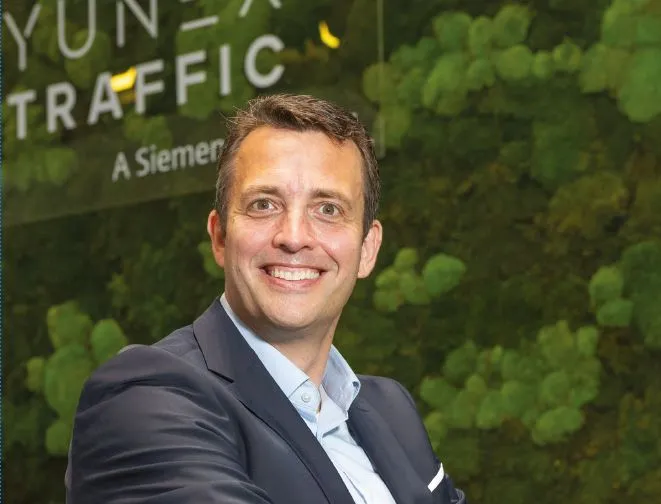Last month’s Economic Development Vitality Initiative forum, co-sponsored by IBM, identified strong infrastructure, including intelligent transportation systems (ITS) as highlighted by panellist Scott Belcher, CEO of ITS America, as essential.
The key to ensuring the sustainability and resilience of our critical transportation infrastructure, in the end, comes down to encouraging the right choices. Data collected by industry, government and academia over the past several decades shows a clear correlation
November 26, 2013
Read time: 2 mins
Last month’s Economic Development Vitality Initiative forum, co-sponsored by 62 IBM, identified strong infrastructure, including intelligent transportation systems (ITS) as highlighted by panellist Scott Belcher, CEO of 560 ITS America, as essential.
The key to ensuring the sustainability and resilience of our critical transportation infrastructure, in the end, comes down to encouraging the right choices. Data collected by industry, government and academia over the past several decades shows a clear correlation between a modal shift from personal vehicle to public transit use and positive environmental benefits in two very distinct ways.
Reducing emission sources is dramatic in terms of CO2 reductions. Because traffic is reduced due to the move to public transit, the flow of the remaining vehicles on the highway becomes more efficient and reduced congestion lowers the carbon footprint of these vehicles. The reduced energy use made available on the demand side by such efficiency has additional environmental benefits on the supply side by lowering the environmental impact of energy production and distribution.
Transit is a win-win situation when it comes to both the environment and the public. Even though there is growing public interest in using mass transit, it is important to provide practical incentives through clear and accurate real-time information that allows commuters to make the shift to mass transit from their own vehicles as seamless and easy as possible. Weather, maintenance work, incidents and events each play a role in how different modes of transportation operate so access to transit information helps citizens make more informed immediate and long-term choices. The end result will be a balanced optimization of transit use and personal vehicles, which can result in a faster commute and many environmental benefits. Moreover, it ensures that no infrastructure capacity is sub-optimized, that we need build, enhance or maintain only that which we actually use.
The key to ensuring the sustainability and resilience of our critical transportation infrastructure, in the end, comes down to encouraging the right choices. Data collected by industry, government and academia over the past several decades shows a clear correlation between a modal shift from personal vehicle to public transit use and positive environmental benefits in two very distinct ways.
Reducing emission sources is dramatic in terms of CO2 reductions. Because traffic is reduced due to the move to public transit, the flow of the remaining vehicles on the highway becomes more efficient and reduced congestion lowers the carbon footprint of these vehicles. The reduced energy use made available on the demand side by such efficiency has additional environmental benefits on the supply side by lowering the environmental impact of energy production and distribution.
Transit is a win-win situation when it comes to both the environment and the public. Even though there is growing public interest in using mass transit, it is important to provide practical incentives through clear and accurate real-time information that allows commuters to make the shift to mass transit from their own vehicles as seamless and easy as possible. Weather, maintenance work, incidents and events each play a role in how different modes of transportation operate so access to transit information helps citizens make more informed immediate and long-term choices. The end result will be a balanced optimization of transit use and personal vehicles, which can result in a faster commute and many environmental benefits. Moreover, it ensures that no infrastructure capacity is sub-optimized, that we need build, enhance or maintain only that which we actually use.










